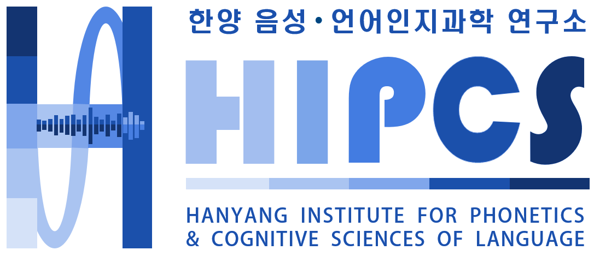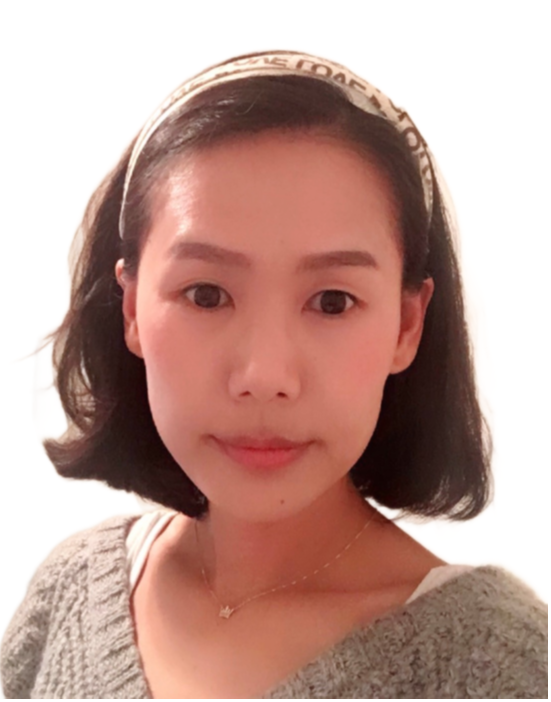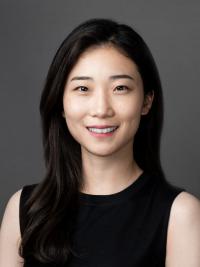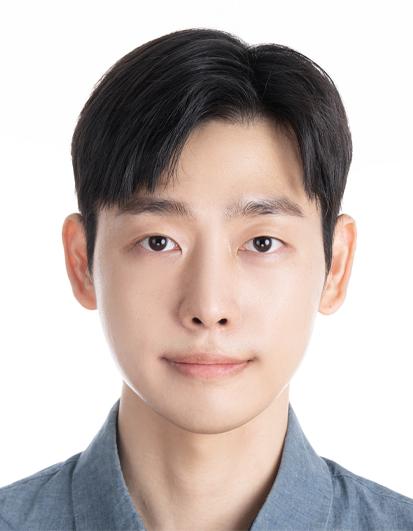Postdocs & Staff
People
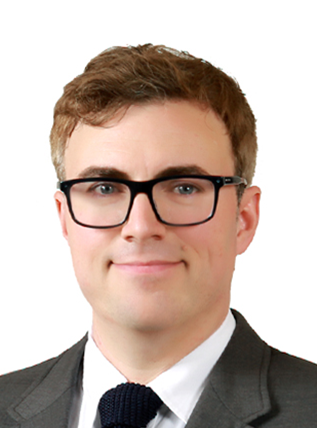
Richard Hatcher
Research Assistant Professor
Research interest: Phonetics, Prosody, Intonation, Phonetic Typology, Iroquoian languages
Email: richard.j.hatcher.jr@gmail.com
Richard Hatcher is a post-doctoral researcher at Hanyang Institute for Phonetics and Cognitive Sciences. He recently received his PhD in Linguistics from the State University of New York at Buffalo in the summer of 2022, with a dissertation entitled "the Phonetics and Phonology of Cayuga Prosody." His research involves the phonetic documentation and description of prosodic features of less studied Iroquoian languages, including Cayuga, Seneca, and Oneida as well as the development of tools to assist in such linguistic documentation. He is currently investigating tonal alignment in Seoul Korean.
Selected Publications:
Prud'hommeaux E, Jimerson R, Hatcher R, Michelson K. (2021) Automatic Speech Recognition for Supporting Endangered Language Documentation.
Language Documentation and Conservation, 491-593. http://hdl.handle.net/10125/
Hatcher R. (2020) Cayuga word melodies—A corpus phonetic study. The Journal of the Acoustical Society of America, 148, 2722. https://doi.org/10.1121/1.
Bellingham E, Beck H, Hatcher R. (2020) A Discourse Model for “Undirected Speculation.” Fresh Perspectives on Major Issues in Pragmatics, 163-180. Routledge. https://doi.org/10.4324/
DiCanio C, Hatcher R. (2018) On the non-universality of intonation: Evidence from Triqui. The Journal of the Acoustical Society of America, 144, 1941. https://doi.org/10.1121/1.
___________________________________________________________________________________
Jiyeon Song
Post-doc
Research interest: Phonetics, Phonology, Syntax
Email: jiyeoni00@gmail.com
Jiyeon Song is a post-doctoral researcher at Hanyang Institute for Phonetics and Cognitive Sciences. She earned her BA and MA in English language and literature from Korea University, and her PhD in Linguistics at the University of South Carolina in 2022 with a dissertation entitled “Illusory vowels and the North Kyungsang Korean Vowel Merger in English Loanword Adaptation into Korean.” Her research interests include phonetics, lab phonology, and syntax.
Selected Publications:
Song, J., Lee, S., & Dubinsky, S. (2022). Event- and type-plurality of the anti-quantifier -ssik in Korean, The Proceedings of 2022 Seoul International Conference on Generative Grammar (SICOGG), Seoul, Korea.
Song, J., & Dalola, A. (2019). Crossing the Parallel: Effects of Gender and Length of Residence in North Korean Refugees’ Back Vowels. In Proceedings of the 19th International Congress of Phonetic Sciences (ICPhS).
Song, J., & Dalola, A. (2019). Linguistic entrenchment and the effect of subjective lexical familiarity in Korean /n/-insertion. Proceedings of the Linguistic Society of America (LSA), 4(1), 34:1-8. Washington DC: LSA.
Song, J., & Dubinsky, S. (2018). Event- and type-plurality marker: -tul in Korean. The Proceedings of 2018 Seoul International Conference on Generative Grammar (SICOGG), 357-367. Seoul, Korea: Konkuk University.
Song, J., & Dubinsky, S. (2018). Predicated-Predicate nominatives in Korean: A novel class of nominatives. Proceedings of the 13th Workshop on Altaic Formal Linguistics (WAFL 13), 425-432. MIT Working Papers in Linguistics (MITWPL). Cambridge, MA: MIT Press.
___________________________________________________________________________________
Daeyong Lee
Post-doc
Research interest: Phonetics, phonology, psycholinguistics
Email: daeyonglee@hanyang.ac.kr
Dae-yong Lee is a postdoctoral researcher at Hanyang Institute for Phonetics and Cognitive Sciences. He received his PhD in Linguistics from the University of Oregon, with a dissertation entitled “Factors that Affect Generalization of Adaptation”. Dae-yong is interested in the cognitive processes underlying speech perception and production. He is especially interested in mechanisms underlying adaption and generalization to unfamiliar speech and factors that affect the initiation and maintenance of clear speech.
Selected Publications:
Lee, D. Y., & Baese-Berk, M. M. (2020). The maintenance of clear speech in naturalistic conversations. The Journal of the Acoustical Society of America, 147(5), 3702-3711.
Lee, D. Y., & Baese-Berk, M. M. (2021). Non-native English listeners' adaptation to native English speakers. JASA Express Letters, 1(10), 105201.
Baese-Berk, M. M., Drake, S., Foster, K., Lee, D. Y., Staggs, C., & Wright, J. M. (2021). Lexical diversity, lexical sophistication, and predictability for speech in multiple listening conditions. Frontiers in psychology, 12, 661415.
___________________________________________________________________________________
Jiyoung Jang
Post-doc
Research interest: Phonetics, Articulatory Phonetics, Speech production and perception
Email: jiyoungljang@hanyang.ac.kr
Jiyoung Jang is a post-doctoral researcher at Hanyang Institute for Phonetics and Cognitive Sciences. She received her PhD in Linguistics from University of California, Santa Barbara in 2023, with a dissertation entitled “Functions of prosodic boundaries in an edge-prominence language: Marking focus and phrasing in Seoul Korean”. Her research includes L1 and L2 phonetics, phonetics-prosody interface, Articulatory Phonology, and speech production/perception.
Selected Publications:
Jang, J., Kim, S., & Cho, T. (2023). Prosodic Structural Effects on Non-Contrastive Coarticulatory Vowel Nasalization in L2 English by Korean Learners. Language and Speech, 66(2), 381-411.
Jang, J., & Katsika, A. (2023). Articulatory manifestation of focus-induced prominence in Seoul Korean. In Proceedings of the 20th International Congress of Phonetic Sciences, 1686-1690.
Jang, J., & Katsika, A. (2022). The coordination of boundary tones with constriction gestures in Seoul Korean, an edge-prominence language. Proceedings of the 11th International Conference on Speech Prosody, 145-149.
Katsika, A., Jang, J., Krivokapić, J., Goldstein, L., & Saltzman, E. (2020). The role of focus in accentual lengthening in American English: Kinematic analyses. In Proceedings of the 10th International Conference on Speech Prosody, 275-279.
Jang, J., Kim, S., & Cho, T. (2018). Focus and boundary effects on coarticulatory vowel nasalization in Korean with implications for cross-linguistic similarities and differences. The Journal of the Acoustical Society of America, 144(1), EL33-39.
___________________________________________________________________________________
Hyesun Jang
Post-doc
Research interest: Storytelling in Modern Diegetic Drama, Space and Identity in Northern Irish Drama, Contemporary British and Irish Women Playwrights
Email: hyesunjj@hanyang.ac.kr
Hyesun Jang is a post-doctoral researcher at Hanyang Institute for Phonetics and Cognitive Sciences of Language. She receives her PhD in English Literature at Hanyang University in 2021 with a dissertation of “Re-Imagining Northern Ireland: Space and Identity in the Post-Troubles Dramas of Stewart Parker, Owen McCafferty, and David Ireland.” She was awarded the Global PhD Fellowship from the Ministry of Education of the Republic of Korea and the National Research Foundation of Korea for her three-year research project entitled “Storytelling in Modern Drama: Diegetic Theatre and the Imbrication of Memory” from 2016 to 2019. She was the laureate of Academic Achievement Award from Industry-University Cooperation Foundation of HYU and Global Research Grant from Global PhD Fellowship program of NRF in 2017.
Selected Publications:
Jang, Hyesun. (2021). After the Peace: Performing Placelessness in David Ireland’s Cyprus Avenue. Journal of Modern English Drama, 34 (3), 203-28.
Jang, Hyesun. (2019). Imagining Alternative Northern Ireland: Spatial Dynamics in Stewart Parker’s Pentecost. Journal of Modern English Drama, 32 (1), 279-304.
___________________________________________________________________________________
Staff
Eunhwan Lee
Research interest: Linguistics, psycholinguistics
Email: rill15@hanyang.ac.kr
Eunhwan Lee earned his B.A. in English Language and Literature from Hanyang University in 2015. He went on to obtain his M.A. in English Linguistics from the same university in 2020, with a thesis entitled "An Analysis of Lexical Errors in Literary Machine Translation". The thesis focuses on identifying and analyzing lexical errors in literary texts using recent neural-machine translation systems from Google and Naver.
__________________________________________________________________________________
